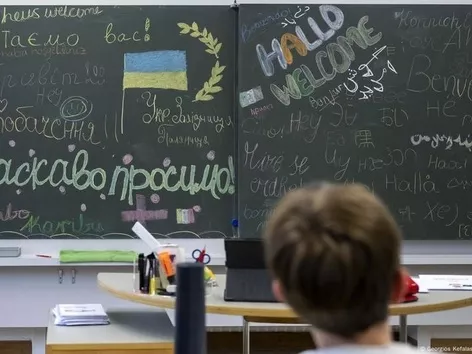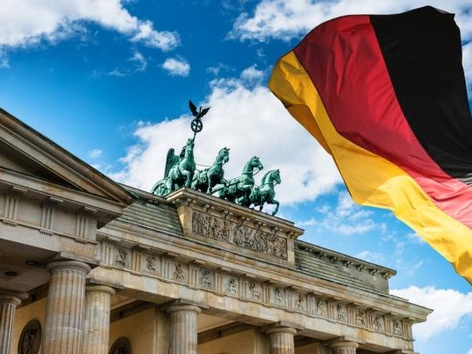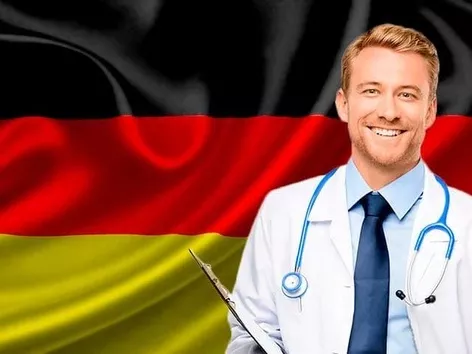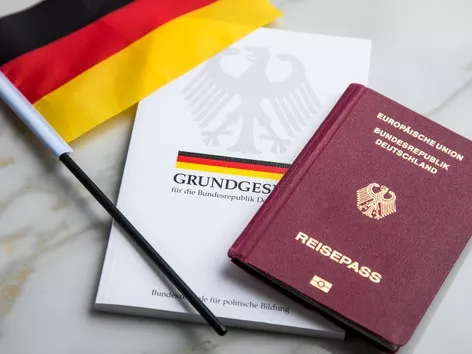In Germany, Ukrainian will be taught as a second foreign language in schools: details

Ukrainian has become the second foreign language in schools in Hesse, Germany. This is an important step in supporting Ukrainian children and promoting Ukrainian culture in Europe. Learn more about educational initiatives and prospects for learning Ukrainian in Germany
At the beginning of the new school year, Germany introduced a significant innovation: Ukrainian will be taught as a second foreign language in some schools. This step is a response to the increasing number of Ukrainian children studying in German schools due to the war in Ukraine. According to DW, more than 200,000 Ukrainian children were enrolled in German schools at the end of the last school year.
To find out which German states are accepting Ukrainians in August 2024, please follow the link.
Overview of the situation: educational opportunities for Ukrainian children in Germany
In most schools, including vocational schools, children from Ukraine have the opportunity to study partially or fully in their native language. This is made possible by the fact that many German schools have hired Ukrainian teachers. In the three federal states with the largest number of Ukrainian refugees, about a thousand Ukrainian teachers are already working.
According to the data provided by the state ministries of education at DW's request, 490 teachers from Ukraine work in Bavaria, 239 in North Rhine-Westphalia, and about 200 in Baden-Württemberg. These figures demonstrate the important role of Ukrainian teachers in supporting education for Ukrainian children abroad.
Hesse: Ukrainian as a second foreign language
The state of Hesse has taken an unprecedented step: starting with the new school year, Ukrainian has become one of the possible second foreign languages that students can choose to study. There are about 200 Ukrainian teachers in Hesse, and now their knowledge will be used to teach Ukrainian not only to children from Ukraine, but also to German students who are interested in learning the language and culture of Ukraine.
The pilot project will be launched in 16 schools in Hesse, including those in Frankfurt am Main, Kassel, and Wiesbaden. The state ministry of education notes that this step will help strengthen European self-identification and future economic cooperation with Ukraine.
Visit Ukraine on social media: Telegram | YouTube | Instagram | Facebook | Twitter | TikTok
The situation in other federal states
Other federal states have not yet supported Hesse's initiative. For example, in Bavaria, Ukrainian can be chosen as a second foreign language only by those students who cannot learn another foreign language due to integration difficulties. In North Rhine-Westphalia, students from Ukraine can replace the compulsory exam in a second foreign language with an assessment in their native Ukrainian. Similar rules apply in Baden-Württemberg.
None of the three states that DW's journalists have contacted so far has plans to make Ukrainian a second foreign language for students of other nationalities. There were also no reports of intentions to follow the example of Hesse.
Interest in the Ukrainian language in higher education institutions
Interest in studying the Ukrainian language and culture is growing not only in schools, but also in higher education institutions in Germany. In July, the Viadrina University in Frankfurt opened a center for Ukrainian studies, which brings together researchers of Ukrainian culture, politics, and history. A similar center will soon appear in Regensburg. These initiatives are aimed at supporting and developing research on Ukraine, its language, history and culture.
In total, more than ten universities in Germany offer their students to study the Ukrainian language and culture to varying degrees. One of the most “Ukrainian” is the University of Potsdam, where Professor Alexander Well, chairman of the German Association of Ukrainian Studies, works. He was one of the first to call on the academic community in Germany to pay more attention to Ukraine after the start of russia's large-scale invasion of Ukraine.
We remind you! According to the decision of the Parliamentary Assembly of the Council of Europe (PACE), EU countries should give immediate priority to the teaching of the Ukrainian language in European schools. Read how the PACE plans to integrate Ukrainians into the European educational system and what challenges this process faces in our previous article.
Photo: Georgios Kefalas/KEYSTONE/picture alliance
Want to know more? Read the latest news and useful materials about Ukraine and the world in the News section.
Our recommendation for a safe and comfortable trip:
Visit Ukraine Insurance - insurance for a safe stay abroad without unnecessary expenses;
Green Card - compulsory car insurance for traveling abroad;
Visit Ukraine Tickets - book tickets for buses, trains, and airplanes to/from Ukraine and between cities around the world;
Private Lawyer service - professional legal support on visa and migration issues;
Visit Ukraine Merch - buy patriotic clothing and accessories with worldwide delivery.
© 2018-2024, Visit Ukraine. Use, copying or reprinting of materials on this site is permitted only with a link (hyperlink for online publications) to Visit Ukraine.
All rights reserved.
Recommended articles
3 min
For refugees
Germany: rules of entry and residence. What does a Ukrainian need to know in 2024?
Germany continues to accept Ukrainian refugees, helping them to build their lives in this European country. Today, Ukrainian refugees in Germany receive substantial financial assistance and have easier access to the labor market. Find out how to enjoy temporary protection privileges and other conditions of stay in Germany
15 Aug. 2024
More details2 min
Work
Legalization of a Ukrainian medical diploma in Germany: a guide for doctors and cosmetologists
At the moment, Ukrainian doctors who left for Germany as a result of the hostilities have some difficulties in obtaining a license, which has negative consequences for both them and the service sector in the country. The obstacle is the German bureaucracy, which, however, can be overcome by following a clear, legally prescribed algorithm.
10 Aug. 2024
More details3 min
How to get there?
If you are planning a trip from Ukraine to Germany by car, you need to choose a convenient route in advance and get acquainted with the rules for drivers in the country. Find out more about the necessary documents for crossing the border, convenient routes from different cities of Ukraine and the main rules of the road in Germany
19 Aug. 2024
More details2 min
For refugees
Germany will retain the right to late resettlement status for Ukrainian refugees: what it means
Ukrainian refugees in Germany will retain the right to late resettlement status, which provides stable legal grounds for long-term stay in Germany. Find out how to obtain this status and what opportunities it opens up for integration and building a life in Germany
26 Aug. 2024
More details

